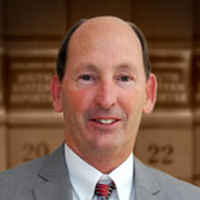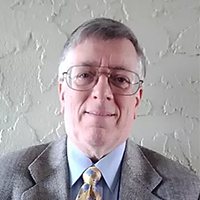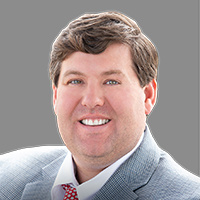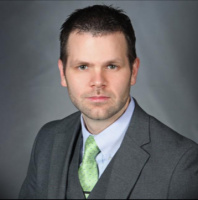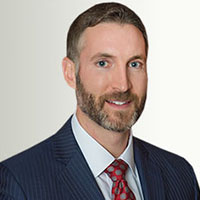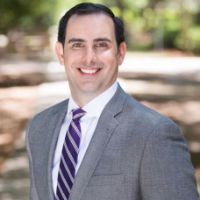Mr. David W. Harwell | Partner
Top Local Lawyers
 Premium
Premium
William E. Hopkins
Hopkins Law Firm, LLC
Accident & Injury, Divorce & Family Law, Criminal, Class Action,
12019 Ocean Highway Po Box 1885
Pawleys Island, SC 29585
 Premium
Premium
Mark Andrew Nappier
Joye Nappier & Risher, LLC
Accident & Injury, Lawsuit & Dispute, Criminal,
3575 Highway 17 Business Nappier
Murrells Inlet, SC 29576
 Premium
Premium
Gene McCain Connell
Kelaher Connell & Connor, PC
Accident & Injury, Car Accident, Slip & Fall Accident, Class Action, Workers' Compensation
1500 U.S. Highway 17 North Suite 209
Surfside Beach, SC 29575
 Premium
Premium
David E. Rigney
Rigney Law Firm
Divorce & Family Law, Criminal, Traffic, Business, Immigration
1500 Highway 17 North Suite 212, The Courtyard
Myrtle Beach, SC 29575
 Premium
Premium
Jeffrey David Morris
Morris Law Accident and Injury Lawyers, LLC
Workers' Compensation, Personal Injury, Nursing Home, Mass Torts, Wrongful Death
1335 44th Ave N Suite 101
Myrtle Beach, SC 29577
 Premium
Premium
Jeffrey T. Lucas
Lucas Law
Criminal,
P.O. Box 9299
Myrtle Beach, SC 29577
 Premium
Premium
Randall K. Mullins
Mullins Law Firm, PA
Accident & Injury, Criminal, Divorce & Family Law, Real Estate, General Practice
1312 Madison Drive P.O. Box 585
North Myrtle Beach, SC 29582
 Premium
Premium
Michael Charles Sahn
Sahn Law Firm, LLC
Accident & Injury, Criminal, Traffic,
225 Seven Farms Drive Suite 105
Charleston, SC 29492
 Premium
Premium
Benjamin William Akery
The Steinberg Law Firm, LLC
Accident & Injury, Workers' Compensation,
118 S Goose Creek Blvd
Goose Creek, SC 29445
About David
The Honorable David Walker Harwell, retired Chief Justice of The Supreme Court of South Carolina, is a senior partner at Bell Legal Group in its Georgetown office.
Justice Harwell brings more than 50 years of legal experience to Bell Legal Group, including 21 years of service as a South Carolina Circuit Court Judge, 10 years of service in the South Carolina Legislature, and 20 years as a practicing attorney. He practices in the areas of mediation and arbitration as part of his commitment to Alternative Dispute Resolution (ADR), a means of conflict resolution that he was instrumental in bringing to South Carolina.
Justice Harwell graduated from the University of South Carolina School Of Law in 1958, where he distinguished himself as a member of the editorial board of the South Carolina Law Review, the National College of State Trial Judges at the University of Nevada in 1973, and the American Academy of Judicial Education at the University of Colorado in 1976.
He served in the South Carolina House of Representatives from 1963-1973 where he was a member of the Judiciary committee, the Ways and Means committee, and chairman of the S.C. Agriculture Study Committee. From 1973-1980, he served as a resident circuit judge of the South Carolina Twelfth Judicial Circuit, comprising Florence and Marion counties, and as an Associate Justice on the State Supreme Court from 1981-1990. Justice Harwell was named Chief Justice of the Supreme Court of South Carolina in 1991 and served three years before retiring.
During his time on the bench he approved the use of genetic testing in criminal cases, recognized battered women's syndrome as a defense and tried the first death penalty case after the death penalty was restored in 1976. Justice Harwell's tenure on the bench has been described as accessible, innovative, and visionary with his push for mediation as a means of dispute resolution, his reform in the judicial discipline system and his support of the courtroom live camera rule.
Among his many awards and accomplishments, Justice Harwell received the prestigious Order of the Palmetto from Gov. David Beasley, and the Reid Montgomery Freedom of Information Award from the South Carolina Press Association for opening South Carolina's courtrooms to cameras. He was awarded an honorary Doctorate degree from both Francis Marion and Coastal Carolina Universities. He is a member of the American Bar Association, the South Carolina Bar Association, a certified mediator and arbitrator in both the state and federal courts and is a fellow in the American College of Civil Trial Mediators.
He enjoys a national reputation for his work in mediation and arbitration and frequently writes and speaks on Alternative Dispute Resolution, legislation that he was instrumental in bringing to South Carolina as a means of ridding court dockets of backlog and offering alternative means to solve disputes.
Admission

Education
University of South Carolina School of Law
1958







